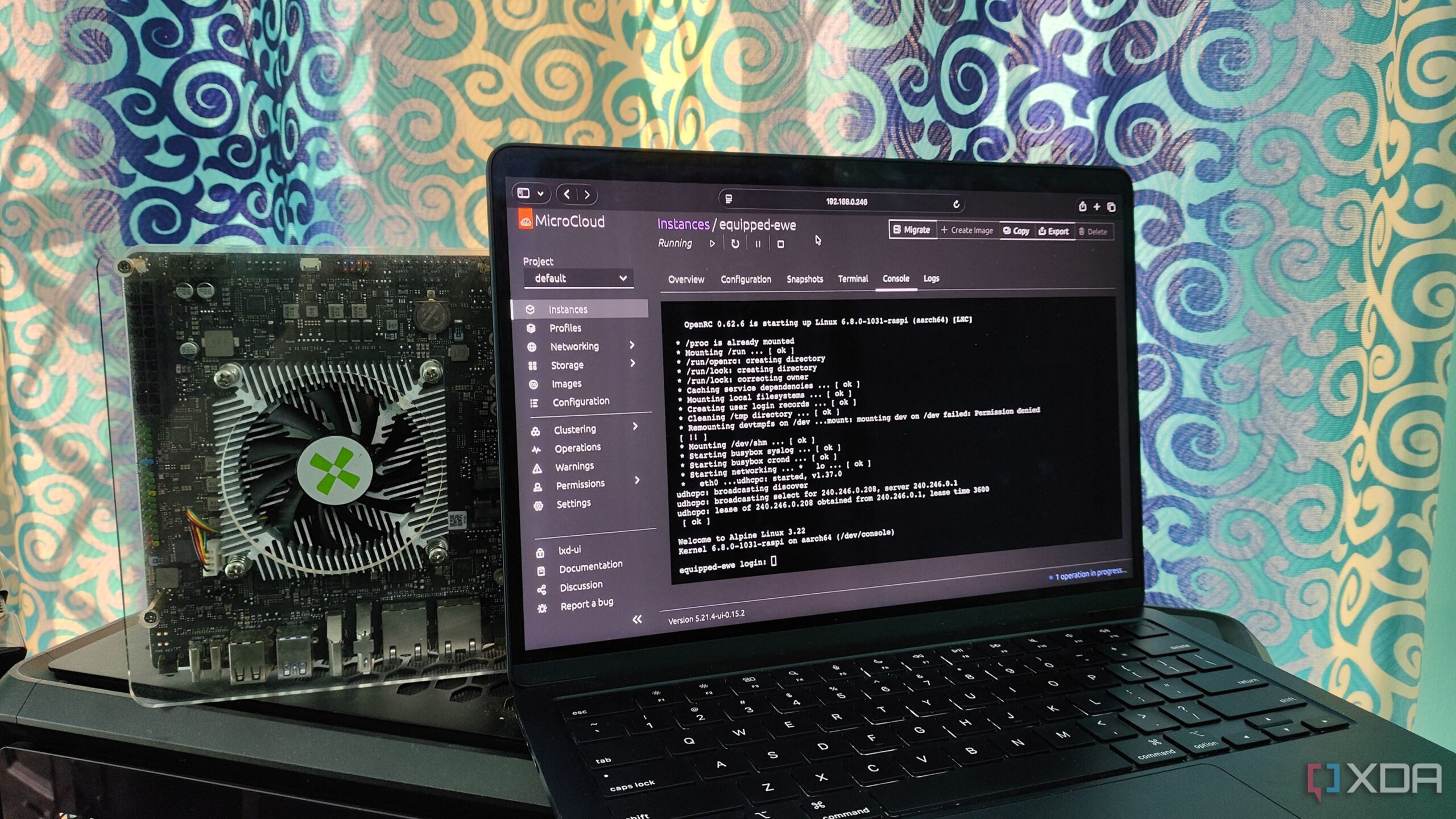Top Stories
Canonical’s MicroCloud Revolutionizes Home Labs with New Features

URGENT UPDATE: Canonical’s new MicroCloud has emerged as a game-changer for home lab enthusiasts, offering exciting features that elevate virtualization and containerization options. Just launched, this innovative platform is already making waves, especially among users of low-power devices like the Raspberry Pi.
Home lab aficionados are buzzing about MicroCloud’s ability to seamlessly support both virtual machines and lightweight containers, a significant leap from traditional platforms that often cater to just one. This is vital for tech lovers who require flexibility in their setups. Unlike other home lab distributions, MicroCloud utilizes LXD for virtualization, enabling users to deploy containers effortlessly. This opens the door for those using older machines or single-board computers, enhancing their capabilities without the need for heavy hardware.
One of the standout features is MicroCloud’s support for high-availability clusters, designed for users who prioritize resilience and fault tolerance. MicroCloud utilizes micro-service versions of popular tools to ensure robust clustering support, making it an attractive option for those seeking reliability. With MicroOVN managing networking and MicroCeph handling distributed storage, users can expect a streamlined experience.
For users who appreciate simplicity, MicroCloud excels. The setup process is straightforward, requiring just a few commands to deploy the server and add cluster nodes. The platform also boasts a user-friendly web interface, making operations like creating storage pools and managing snapshots accessible without extensive documentation.
Notably, MicroCloud runs flawlessly on the Raspberry Pi, which is a revelation for many. Users can now enjoy a hassle-free installation process that supports Arm-based systems right out of the box. This compatibility allows enthusiasts to run multiple lightweight instances seamlessly, creating new possibilities for low-power computing.
While MicroCloud stands out for its unique offerings, it is not without limitations. Users transitioning from other platforms like Proxmox may find the absence of external backup support for virtual guests a drawback. However, the built-in snapshot feature compensates for this limitation, providing a reliable option for data preservation.
As the tech community embraces this new tool, it’s clear that Canonical’s MicroCloud is shaping the future of home labs. With its innovative features and support for a variety of systems, MicroCloud is positioned to become a favorite among tech enthusiasts.
Stay tuned for more developments as users around the globe begin to share their experiences with this promising platform. The home lab landscape is evolving, and MicroCloud is at the forefront.
-

 Top Stories3 weeks ago
Top Stories3 weeks agoMarc Buoniconti’s Legacy: 40 Years Later, Lives Transformed
-

 Business2 weeks ago
Business2 weeks agoForeign Inflows into Japan Stocks Surge to ¥1.34 Trillion
-

 Health3 weeks ago
Health3 weeks agoInnovative Surgery Restores Confidence for Breast Cancer Patients
-

 Sports1 month ago
Sports1 month agoSteve Kerr Supports Jonathan Kuminga After Ejection in Preseason Game
-

 Top Stories3 weeks ago
Top Stories3 weeks agoBOYNEXTDOOR’s Jaehyun Faces Backlash Amid BTS-TWICE Controversy
-

 Science2 weeks ago
Science2 weeks agoUniversity of Hawaiʻi Joins $25.6M AI Project to Monitor Disasters
-

 Science1 month ago
Science1 month agoChicago’s Viral ‘Rat Hole’ Likely Created by Squirrel, Study Reveals
-

 Lifestyle1 month ago
Lifestyle1 month agoKelsea Ballerini Launches ‘Burn the Baggage’ Candle with Ranger Station
-

 Entertainment1 month ago
Entertainment1 month agoZoe Saldana Advocates for James Cameron’s Avatar Documentary
-

 Politics1 month ago
Politics1 month agoDallin H. Oaks Assumes Leadership of Latter-day Saints Church
-

 Top Stories3 weeks ago
Top Stories3 weeks agoCarson Wentz Out for Season After Shoulder Surgery: Urgent Update
-

 Lifestyle1 month ago
Lifestyle1 month agoDua Lipa Celebrates Passing GCSE Spanish During World Tour









